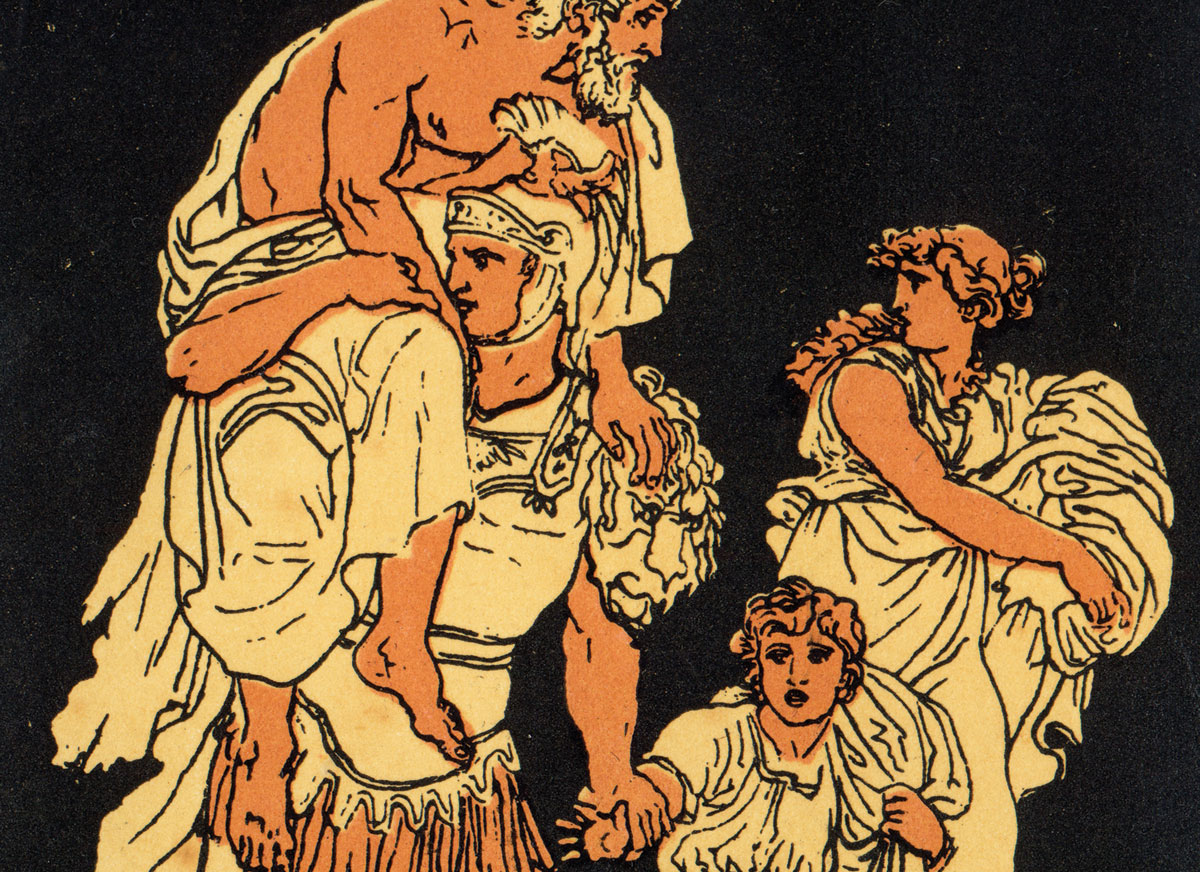Evangelicals & Catholics—Together?
When a consultation of theologians and leaders from both traditions released its “Evangelicals and Catholics Together” in March 1994, I thought it a rather mild statement. Its modest thesis said that evangelicals and Roman Catholics, since they agree on 99.44 percent of just about everything, should concentrate their energies on mutual cooperation in the public sphere with a view to furthering peace and prosperity in civil society, laboring together that politics and culture be secured by moral truth, and working to reconcile the manifold social tensions that beget oppression and unhappiness. To achieve these tasks more effectively, the document suggested, both groups should stop regarding each other chiefly as mines to be exploited for conversion purposes.
Regarding it as an important ecumenical statement on the American scene, First Things (May 1994, No. 43) published the document immediately, and Touchstone (Vol. 7.2, Spring 1994) quickly followed, with a very substantial excerpt. Even as we were going to press, however, one began to hear critical rumblings. They were entirely Protestant rumblings. Not a whisper of complaint was heard in Roman Catholic quarters, but a good number of evangelicals reacted with genuine alarm. Some of the document’s backers and signers, like Charles Colson and Dr. William Abraham of Southern Methodist University, received very unkind mail, for example, while another of the signers, Dr. John White, the president of Geneva College and former president of the National Association of Evangelicals, was called to task by his college’s Board of Trustees.
Other critics have been more public. For instance, in opposition to the document there appeared seven “Resolutions for Roman Catholic and Evangelical Dialogue,” drawn up by Michael Horton, revised by J. I. Packer, and signed by 36 prestigious evangelical leaders. Although “Evangelicals and Catholics Together” had listed 10 points of theology that still divide the two groups, the authors and signers of these “Resolutions” believe that that list was woefully incomplete, and they point particularly to papal infallibility, the place of “good works,” and, especially, justification by faith alone as controversies yet to be resolved.
The same issue of Christianity Today that reported those “Resolutions” (July 18, 1994) also carried Kenneth Kantzer’s editorial warning that “Evangelicals and Catholics Together” “could be interpreted as jeopardizing the biblical gospel.” Criticizing the document’s suggestion that evangelicals and Roman Catholics should cease regarding one another as possible fields for missionary activity, he insisted that evangelicals “cannot do otherwise than to seek to win everyone everywhere, whether they be Catholics, Jews, Mormons, or secularists. . . .” Kantzer’s missionary list is, to say the least, instructive. It could help explain, for example, why there are so many evangelicals running off to Russia to convert Eastern Orthodox Christians to Protestantism instead of going over to Saudi Arabia where similar efforts among Muslims might win them a martyr’s crown.
Who Can Be Saved?
The bulk of Kantzer’s editorial is more doctrinal. He particularly points to the document’s inattention to what has been the major theological difference between Roman Catholics and evangelicals from the beginning: “Justification by faith is mentioned as a common commitment as though it had never been a matter of serious disagreement.” He generously concedes, to be sure, that “many Catholics today are true and godly believers in Christ,” but they manage this feat, alas, only “by ignoring the contrary teachings of their own church.” In other words, one cannot be both a loyal Catholic and a good Christian. (Somebody call Mother Teresa so she can repent of all those “good works” before it’s too late.)
In the magazine Modern Reformation (No. 26), of which I read a reprint scheduled to appear again in Roman Catholicism: Evangelical Protestants Analyze What Unites & Divides Us, Michael Horton also challenges “Evangelicals and Catholics Together.” The ability of these two groups to come to together on their joint statement, Horton believes, results from a sellout by the evangelicals: “It is not Rome that has come closer to an evangelical view of imputed righteousness, but Evangelicals who have forfeited their convictions or downplayed their significance.”
Horton minces no words about the meaning of justification. It is the act of God by which a person is, in a purely external and forensic sense, declared just by reason of the atoning merits of Christ, with no cooperative (“synergistic”) action on the part of that person. It is “neither attained by humans nor infused or worked internally by God into the human soul.” This doctrine, says Horton, is essential to the gospel itself and as such, again if I properly understand him, necessary for salvation: “. . . we do insist as essential for salvation that there be some recognition that God alone saves by Christ alone. . . .”
Further Differences
Since this discussion attendant to “Evangelicals and Catholics Together” touches topics important to the very mission of Touchstone, I will comment briefly on certain points raised by the critics of that document, particularly Michael Horton.
First, I agree with Horton’s contention that the two groups do not have “sufficient doctrinal agreement for a common evangelistic ministry.” They are further apart, I submit, than either side appears to guess. Horton argues that the major difference is in the theology of justification, but their differing beliefs about sacramental efficacy and Mary, the Mother of the Lord, cause me to think that the two groups are even more deeply divided on the Incarnation itself, even though they do not seem to suspect it.
Second, I believe that Horton’s representation of the Roman Catholic thesis on justification (faith plus works) is oversimplified. Roman theology teaches (whether in Aquinas or Trent or elsewhere eludes me at the moment) that principium meriti non cadit sub meritum, which I would paraphrase as “the principle of merit cannot be merited.” Following St. Augustine, the Roman Catholic Church always has insisted that the sole initiative in salvation is God’s. If I do not further pursue this thought here, it is because Roman Catholics can do a better job of defending themselves against misrepresentation than I can.
A Time for Candor
Third (and here one must be just as candid as the document’s evangelical critics), I am convinced that the doctrine of external justification as described by Horton is a serious distortion of Holy Scripture. It comes of reading the Bible through the lens of medieval Voluntarism (Scotus) and Nominalism (Ockham) and has more to do with certain other speculations of the Scholastics (such as whether an action exists in the one acting or the one being acted upon [see my “Calvin on Providence,” Scottish Journal of Theology, Vol. 28, 1975, especially pp. 531–533]), than it does with the Epistles of St. Paul. The opposite thesis—the thesis that the grace of justification is internal, sanctifying, and transforming—has been ably presented by theologians from the Greek Fathers to Newman, and I don’t propose to review or argue it here.
Fourth, inasmuch as I explicitly reject the evangelical thesis on justification, it would appear, if I grasp Horton’s meaning, that my salvation is in peril. Now let me say that there is nothing surprising nor especially remarkable about this last idea, inasmuch as the thought of my sins would prompt me, on occasion, to exactly the same conclusion. But I am disinclined to fear a like damnation for St. John Chrysostom, St. Theophylact of Ochrid, Apostolos Makrakis, and many other non-Reformation readers of St. Paul who believed that they found in his Epistles ample support for their theology of synergism or “cooperation with grace.”
Fifth, still provided that I understand him, Horton is saying that, in order to be saved, I must have not only faith but also a correct doctrine (“some recognition”) of justification by faith. Now herein lies a real difference between us. I am convinced that Horton’s theology of justification is erroneous and abusive of the Word of God, but not for a moment would it occur to me to fear for his salvation on that account. Why? Because of his faith in Christ our Savior. You see, I believe that a man is justified by faith, not by entertaining a correct view on justification. Consequently, since he manifestly is a man of faith, I plan someday to see Brother Horton in heaven (where he will have come around, I doubt not, to a more correct perspective on the matter).
Finally, even though I like and appreciate “Evangelicals and Catholics Together” very much, it also is refreshing to read the criticisms that Horton, Kantzer, and the other brethren bring to bear against that notable document. They are refusing neither to dialogue with Roman Catholics nor to cooperate with them on the myriad social and moral concerns that we all share. Theirs are simply concerned, courteous, and reasonable voices being raised on behalf of doctrinal convictions, and they deserve respectful and fraternal attention even if, as I believe, those doctrinal convictions are unsound. Ecumenical discussion has generally involved too much bland hobnobbing, and entirely too many pullings of punches, so I am sincerely impressed to hear Kantzer, Horton, and the others proclaim that there must be nothing “ecumenical” at the expense of “orthodoxy.” Whereas a tension between these two words constitutes much of this journal’s dynamism, such voices should be respectfully noted in the pages of Touchstone.
—Patrick Henry Reardon
Patrick Henry Reardon is pastor emeritus of All Saints Antiochian Orthodox Church in Chicago, Illinois, and the author of numerous books, including, most recently, Out of Step with God: Orthodox Christian Reflections on the Book of Numbers (Ancient Faith Publishing, 2019).
subscription options
Order
Print/Online Subscription

Get six issues (one year) of Touchstone PLUS full online access including pdf downloads for only $39.95. That's only $3.34 per month!
Order
Online Only
Subscription

Get a one-year full-access subscription to the Touchstone online archives for only $19.95. That's only $1.66 per month!
bulk subscriptions
Order Touchstone subscriptions in bulk and save $10 per sub! Each subscription includes 6 issues of Touchstone plus full online access to touchstonemag.com—including archives, videos, and pdf downloads of recent issues for only $29.95 each! Great for churches or study groups.
Transactions will be processed on a secure server.
more from the online archives
calling all readers
Please Donate
"There are magazines worth reading but few worth saving . . . Touchstone is just such a magazine."
—Alice von Hildebrand
"Here we do not concede one square millimeter of territory to falsehood, folly, contemporary sentimentality, or fashion. We speak the truth, and let God be our judge. . . . Touchstone is the one committedly Christian conservative journal."
—Anthony Esolen, Touchstone senior editor









